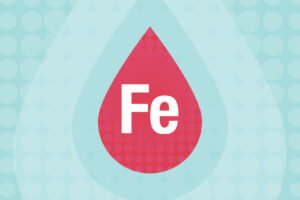By Brian Mason, PT, DPT
In my 30 years as a physical therapist, I have seen many times how pain can lead to a vicious cycle of worsening physical and mental health.
The downward spiral happens this way: A person experiences pain. He or she limits activity for fear of causing more pain. Yet, limiting activity is actually detrimental to both the body and mind.
By the time the person seeks medical help, he or she may be in severe pain and feel depressed about the loss of mobility and quality of life. At that point, powerful prescription opioid pain medications — drugs like oxycodone and hydrocodone — may seem like the best option for immediate pain relief.
I believe, in many cases, there’s a better way.
We recently treated a 52-year-old man who had a history of dependency on opioid pain medication. Just months after breaking his opioid habit, he was involved in a serious motorcycle accident that caused acute neck and back pain. Worried that his pain would lead him to relapse into opioid dependency, he instead decided to pursue physical therapy, which was recommended to him while in the emergency room after his accident.
Less than three weeks after his accident, we started therapy including a variety of stretching and strength training exercises. By starting PT early in his recovery, he was able to take advantage of spinal mobilizations and other techniques that can bring about rapid recovery. After just 10 sessions, his pain had improved to a point where he was ready to return to his job as a laborer — without ever needing to take opioid pain medication.
The Opioid Problem
The use of prescription opioid medications has more than quadrupled in the U.S. since 1999, according to the U.S. Centers for Disease Control and Prevention.
While opioid medications given under a doctor’s supervision are important in certain cases, they have been shown to put patients at risk for overdose, addiction and withdrawal symptoms. In fact, the National Institute on Drug Abuse estimates that more the 2.1 million Americans suffer from substance use disorders related to prescription opioid pain relievers.
Opioids work by blocking pain signals to the brain, which reduces the sensation of pain but does nothing to address the underlying problem. Physical therapy treats pain through movement by:
- Identifying the source of pain and any loss of function.
- Stretching and strengthening related muscles.
- Encouraging production of the natural pain-fighting chemicals in the body.
- Helping patients overcome the fear of movement.
In my experience, fear leads to inactivity and, as I mentioned earlier, inactivity leads to stiffness and more pain. The more passive and sedentary a person becomes, the more likely he or she will seek out pain relief through opioids.
In physical therapy, we help patients understand that some pain is normal and that being active is not going to harm them. We can adapt therapies to your condition and your abilities with options ranging from water therapy to anti-gravity treadmills.
Our goal is get back to you back to a normal level of functioning where you can enjoy a good quality of life.
When to Pursue Physical Therapy
Physical therapy should be considered any time you experience pain that is causing a loss of mobility or the ability to perform normal activities. We can work with you as soon as your doctor feels you are healthy enough for activity.
Even when opioids are prescribed, doctors try to prescribe the lowest effective dose, and combine medication with other non-medical therapies, including physical therapy.
When patients pursue physical therapy as a first-line treatment for pain, we find that we’re able to provide relief in the vast majority of cases. Physical therapy also does not prohibit other treatments. You can still pursue other options with your doctor, including pain medication.
The bottom line: Before you agree to start a prescription for opioids, I urge you to speak with your doctor and a physical therapist about the possibility of trying therapy, first. The sooner you start your active recovery, the more likely you will experience success.
Physical Therapy at CentraState
The OceanFirst Rehabilitation Center at CentraState Medical Center in Freehold offers comprehensive services to aid in the recovery from injury, stroke, illness, surgery and other physical setbacks. Our physical therapists collaborate with your physician to develop a customized treatment plan and work one-on-one with you using our state-of-the-art equipment. In addition to our main center in Freehold, we offer physical therapy at offices in Monroe, Jackson and East Windsor.
Brian Mason, PT, DPT, is a board-certified physical therapist and clinical director of Rehabilitation Services at CentraState Medical Center. The OceanFirst Rehabilitation Center at CentraState Medical Center can be reached by calling 866-CENTRA7.





